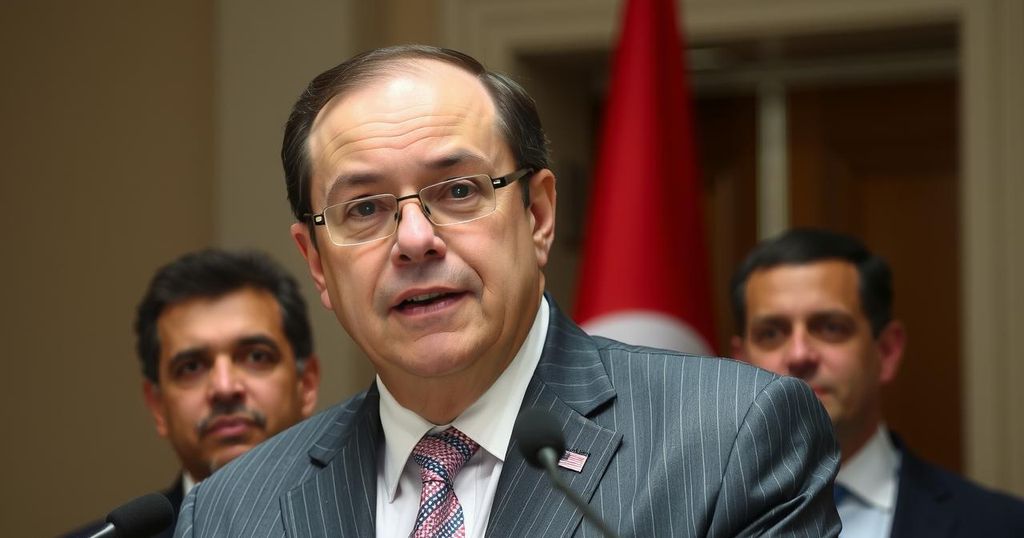Joseph Aoun has been elected as Lebanon’s new president, resolving a political stalemate that persisted since Michel Aoun’s departure in October 2022. Supported primarily by the US and Saudi Arabia, Joseph Aoun’s election may enhance pro-Western interests in Lebanon. The Lebanese army is expected to play a significant role in maintaining peace, particularly in southern Lebanon, against the backdrop of a US-brokered ceasefire with Israel.
In a significant political development, Lebanon’s parliament has elected Joseph Aoun, the US-backed army chief, as the country’s new president, effectively resolving a protracted political stalemate that has lasted since October 2022. Following two rounds of voting, Aoun’s election was facilitated by extensive support from the United States and Saudi Arabia, aimed at securing a leader aligned with their geopolitical interests.
Lebanon has faced a presidential vacuum since the conclusion of Michel Aoun’s term, who was aligned with Iran-supported Hezbollah. Throughout the preceding two years, there were twelve unsuccessful attempts to fill the presidential position, reflecting deep-seated political divisions between pro-Western and pro-Iran factions within the country.
The recent election occurred against the backdrop of a ceasefire agreement brokered by the United States, which ended hostilities between Hezbollah and Israel last November. This ceasefire has renewed hopes for political stability in Lebanon, particularly after the Iranian-backed Hezbollah sustained significant setbacks due to ongoing Israeli military actions. Following these events, the new administration is tasked with overseeing the deployment of the Lebanese army into areas heavily influenced by Hezbollah, especially in southern Lebanon.
According to Lebanon’s established confessional power-sharing system, the presidency is typically held by a Maronite Christian. Joseph Aoun’s ascent marks a pivotal shift in Lebanon’s political landscape, potentially steering the country towards a more stable and cooperative era both domestically and in its foreign relations.
As a key player in implementing the recent ceasefire agreement, the Lebanese army’s role is crucial in maintaining peace in the region, especially in the volatile southern border areas with Israel. The recent elections signal a cautious optimism for Lebanon, as it navigates the challenges of governance amid ongoing political rivalries and external pressures.
Lebanon has been embroiled in a political crisis since the conclusion of former President Michel Aoun’s term in October 2022. The vacuum resulted from failed attempts to elect a new leader, primarily due to the intense rivalry between factions supported by Iran and the United States. The election of Joseph Aoun signals a potential stabilization of Lebanese governance, especially in light of the recent ceasefire with Israel and the associated pressures on Hezbollah. The Lebanese army’s involvement in implementing peace agreements underscores its importance as a stabilizing force in a region marked by conflict and political fragmentation.
The election of Joseph Aoun as Lebanon’s president denotes a critical transition from political paralysis to potential renewal in governance. Supported by the United States and Saudi Arabia, his presidency may promote a unified front against the backdrop of existing political divides. Furthermore, the Lebanese army’s role in maintaining peace and security will be pivotal as Lebanon navigates its future towards stability and cooperation, both internally and with international partners.
Original Source: www.cnn.com






